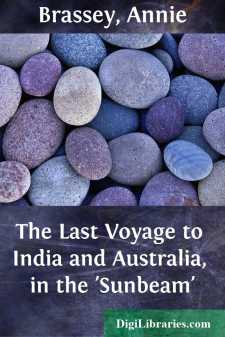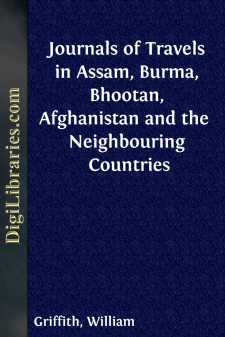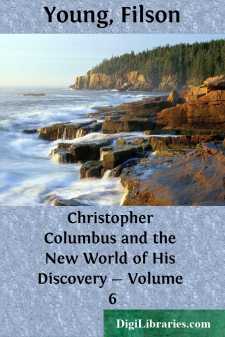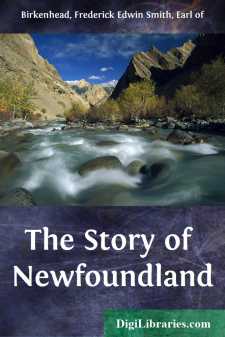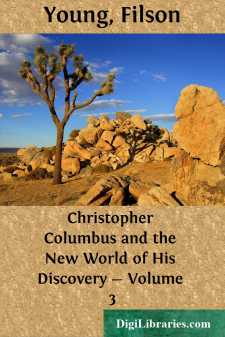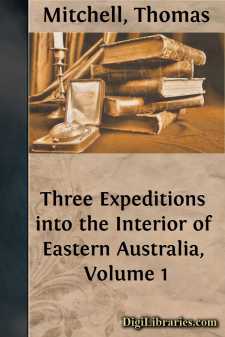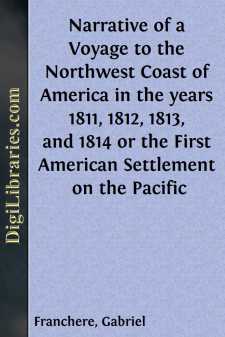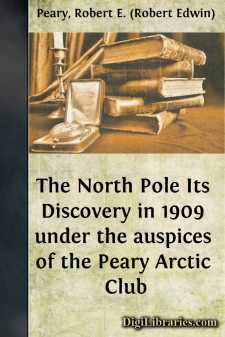History
- Africa 30
- Americas (North Central South West Indies) 50
- Ancient 68
- Asia 58
- Australia & New Zealand 8
- Canada 41
- Caribbean & West Indies 1
- Civilization 20
- Eastern Europe 12
- Europe 310
- Expeditions & Discoveries
- General 77
- Historical Geography 1
- Jewish 9
- Latin America 3
- Medieval 8
- Middle East 13
- Military 248
- Revolutionary 8
- Study & Teaching 5
- United States 353
- Western Europe 56
- World 13
Expeditions & Discoveries Books
Sort by:
by:
Annie Brassey
In giving to the reading world these pages of the last Journal of one of the most popular writers of our day, no apology can be needed, and but little explanation. A word had better perhaps be said, and said here, as to my share in its composition. It is now twelve years ago since my friend—then Mrs. Brassey—asked my advice and assistance in arranging the Diary she had kept during the eleven...
more...
by:
William Griffith
NOTICE OF WILLIAM GRIFFITH, from the Proceedings of the Linnæan Society, with a few extracts from his private correspondence. “WILLIAM GRIFFITH, Esq., the youngest son of the late Thomas Griffith, was born on the 4th of March 1810, at his father’s residence at Ham Common, near Kingston-upon-Thames, in the county of Surrey. “He was educated for the Medical profession, and completed his studies at...
more...
by:
Filson Young
THE THIRD VOYAGE Columbus was at sea again; firm ground to him, although so treacherous and unstable to most of us; and as he saw the Spanish coast sinking down on the horizon he could shake himself free from his troubles, and feel that once more he was in a situation of which he was master. He first touched at Porto Santo, where, if the story of his residence there be true, there must have been potent...
more...
by:
Jacob Abbott
Taking Passage. When Rollo was about twelve years of age, he made a voyage to Europe under rather extraordinary circumstances. He went alone; that is to say, he had no one to take care of him. In fact, in addition to being obliged to take care of himself, he had also his little sister Jane to take care of; for she went with him. The way it happened that two such children were sent to sea on such a long...
more...
CHAPTER I THE LAND AND ITS PEOPLE The island of Newfoundland, which is the tenth largest in the world, is about 1640 miles distant from Ireland, and of all the American coast is the nearest point to the Old World. Its relative position in the northern hemisphere may well be indicated by saying that the most northern point at Belle Isle Strait is in the same latitude as that of Edinburgh, whilst St....
more...
by:
Filson Young
CHAPTER I THE ENCHANTED ISLANDS Columbus did not intend to remain long at San Salvador. His landfall there, although it signified the realisation of one part of his dream, was only the starting-point of his explorations in the New World. Now that he had made good his undertaking to "discover new lands," he had to make good his assurance that they were full of wealth and would swell the revenues...
more...
by:
Thomas Mitchell
PREFACE TO THE FIRST EDITION. The following Journals were written at the close of many a laborious day, when the energies both of mind and body were almost exhausted by long-continued toil. The author trusts that this circumstance will account for, and palliate, some of the defects which may be discovered in his volumes. Conscious as he is of the deficiencies of his work, he nevertheless hopes that the...
more...
CHAPTER I. Departure from Montreal.—Arrival in New York.—Description of that City.—Names of the Persons engaged in the Expedition. We remained in Montreal the rest of the spring and a part of the summer. At last, having completed our arrangements for the journey, we received orders to proceed, and on the 26th of July, accompanied by my father and brothers and a few friends, I repaired to the...
more...
by:
Richard Hakluyt
Thirty-five years ago I made a voyage to the Arctic Seas in what Chaucer calls A little boteNo bigger than a mannë’s thought; it was a Phantom Ship that made some voyages to different parts of the world which were recorded in early numbers of Charles Dickens’s “Household Words.” As preface to Richard Hakluyt’s records of the first endeavour of our bold Elizabethan mariners to find...
more...
FOREWORD The struggle for the North Pole began nearly one hundred years before the landing of the Pilgrim Fathers at Plymouth Rock, being inaugurated (1527) by that king of many distinctions, Henry VIII of England. In 1588 John Davis rounded Cape Farewell, the southern end of Greenland, and followed the coast for eight hundred miles to Sanderson Hope. He discovered the strait which bears his name, and...
more...


